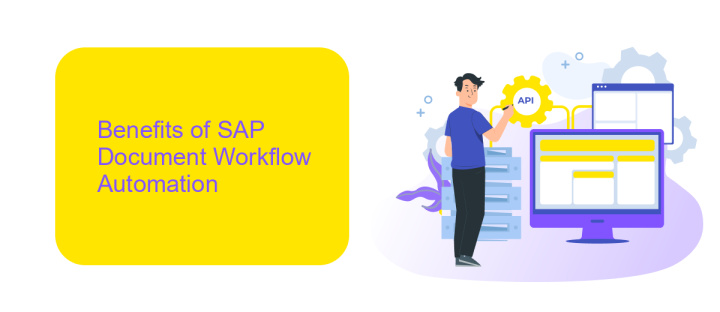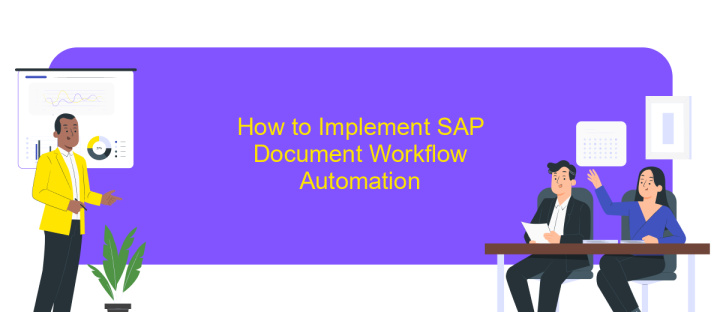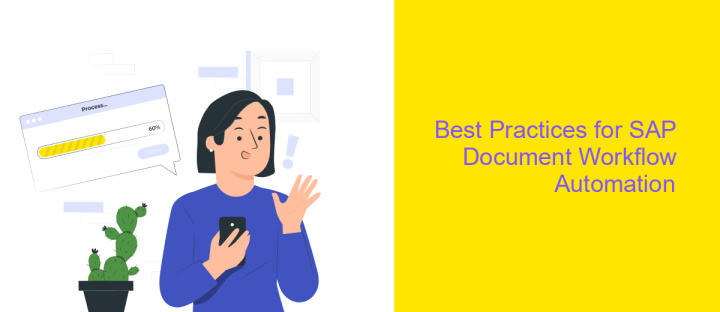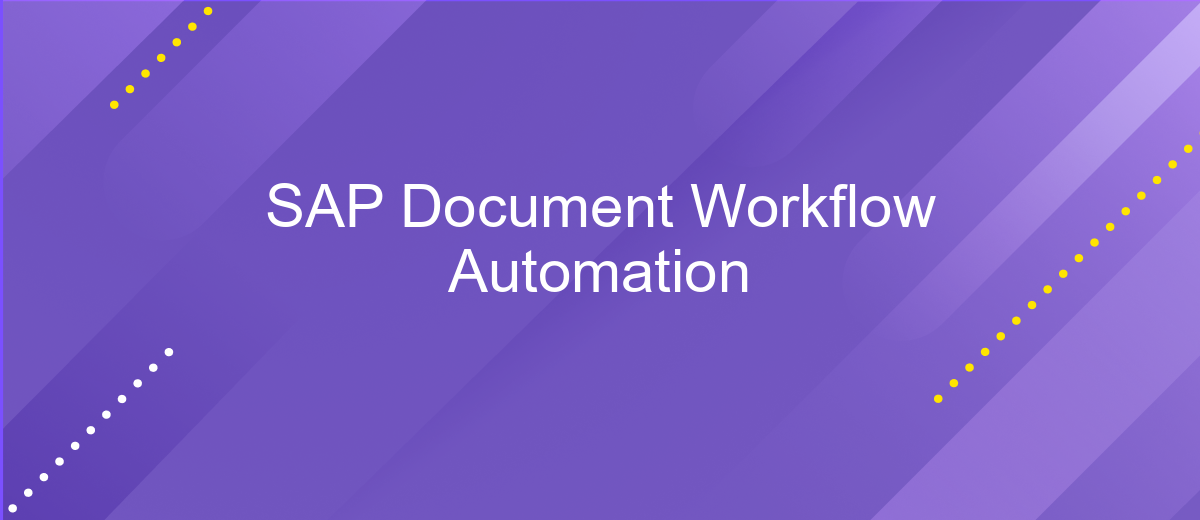SAP Document Workflow Automation
In today's fast-paced business environment, efficient document management is crucial. SAP Document Workflow Automation streamlines and optimizes the handling of documents within organizations, reducing manual effort and minimizing errors. By automating routine tasks and providing real-time tracking, this powerful tool enhances productivity, ensures compliance, and enables seamless collaboration across departments. Discover how SAP Document Workflow Automation can transform your document management processes.
Introduction
SAP Document Workflow Automation streamlines and optimizes the management of business documents, enhancing efficiency and accuracy. By automating routine tasks, organizations can reduce manual errors, save time, and focus on more strategic activities.
- Improved document tracking and visibility
- Enhanced collaboration and communication
- Reduced processing time and costs
- Compliance with regulatory requirements
Integrating SAP Document Workflow Automation with other systems can further enhance its capabilities. Tools like ApiX-Drive facilitate seamless integration by allowing data to flow effortlessly between different platforms. This integration ensures that all relevant information is synchronized, providing a comprehensive view of business processes and enabling better decision-making.
Benefits of SAP Document Workflow Automation

SAP Document Workflow Automation offers numerous benefits that significantly enhance business operations. One of the primary advantages is the reduction of manual tasks, which minimizes the risk of human error and increases overall efficiency. By automating document workflows, organizations can ensure that documents are processed faster and more accurately, leading to improved productivity and better resource management. Additionally, automation provides greater visibility and control over document processes, allowing for real-time tracking and monitoring, which is crucial for compliance and audit purposes.
Another significant benefit is the seamless integration with other systems and applications, facilitated by services like ApiX-Drive. This integration capability allows businesses to connect SAP with various third-party tools, ensuring a smooth flow of information and eliminating data silos. ApiX-Drive simplifies the setup of these integrations, enabling even non-technical users to automate workflows without extensive coding knowledge. As a result, businesses can achieve higher operational agility, reduce IT costs, and focus more on strategic initiatives rather than routine administrative tasks.
How to Implement SAP Document Workflow Automation

Implementing SAP Document Workflow Automation can significantly enhance your business processes by streamlining document management and reducing manual intervention. To get started, follow these steps:
- Analyze Your Workflow: Begin by understanding your current document workflow. Identify bottlenecks and areas where automation can provide the most benefits.
- Set Up SAP Workflow: Use SAP Workflow tools to design and configure automated processes. Define the steps, rules, and conditions that will govern the workflow.
- Integrate with Other Systems: Use integration services like ApiX-Drive to connect SAP with other applications. This ensures seamless data flow and enhances the efficiency of your automated workflows.
- Test and Refine: Before full deployment, thoroughly test the automated workflow to ensure it operates as expected. Make necessary adjustments based on testing feedback.
- Train Your Team: Provide comprehensive training to your team on the new automated processes to ensure smooth adoption and maximum utilization.
By following these steps, you can effectively implement SAP Document Workflow Automation, leading to improved productivity, reduced errors, and better compliance with organizational standards.
Best Practices for SAP Document Workflow Automation

Implementing best practices in SAP Document Workflow Automation can significantly enhance efficiency and accuracy. Start by clearly defining the workflow processes and identifying key documents that require automation. Ensure all stakeholders are involved in the planning phase to align the automation goals with business objectives.
Utilize robust integration tools to streamline the workflow. For instance, ApiX-Drive can be a valuable asset, as it facilitates seamless integration between SAP and other applications, ensuring data consistency and reducing manual errors. Regularly update and maintain these integrations to adapt to evolving business needs.
- Map out the entire document workflow to identify bottlenecks.
- Implement role-based access controls to enhance security.
- Leverage automation tools like ApiX-Drive for efficient integration.
- Regularly monitor and audit workflows to ensure compliance.
- Provide training to employees to maximize the benefits of automation.
Continuous improvement is crucial for maintaining an efficient SAP Document Workflow Automation system. Regularly review the performance metrics and gather feedback from users to identify areas for enhancement. By following these best practices, organizations can achieve a more streamlined, secure, and effective document management process.


Conclusion
In conclusion, the automation of SAP Document Workflow offers significant improvements in efficiency, accuracy, and overall productivity. By automating routine tasks and streamlining document management processes, organizations can reduce human error, save time, and focus on more strategic activities. This not only enhances operational performance but also ensures compliance and better data management.
Furthermore, integrating tools like ApiX-Drive can facilitate seamless connectivity between SAP and other systems, ensuring a smoother and more efficient workflow. ApiX-Drive's capabilities in automating data transfers and synchronizing information across platforms make it an invaluable asset for businesses looking to optimize their document workflows. Embracing these technologies ensures that organizations remain competitive in a rapidly evolving digital landscape.
FAQ
What is SAP Document Workflow Automation?
How can I integrate SAP Document Workflow Automation with other systems?
What are the benefits of using SAP Document Workflow Automation?
Is it possible to customize the workflows in SAP Document Workflow Automation?
What kind of documents can be managed using SAP Document Workflow Automation?
Strive to take your business to the next level, achieve your goals faster and more efficiently? Apix-Drive is your reliable assistant for these tasks. An online service and application connector will help you automate key business processes and get rid of the routine. You and your employees will free up time for important core tasks. Try Apix-Drive features for free to see the effectiveness of the online connector for yourself.

